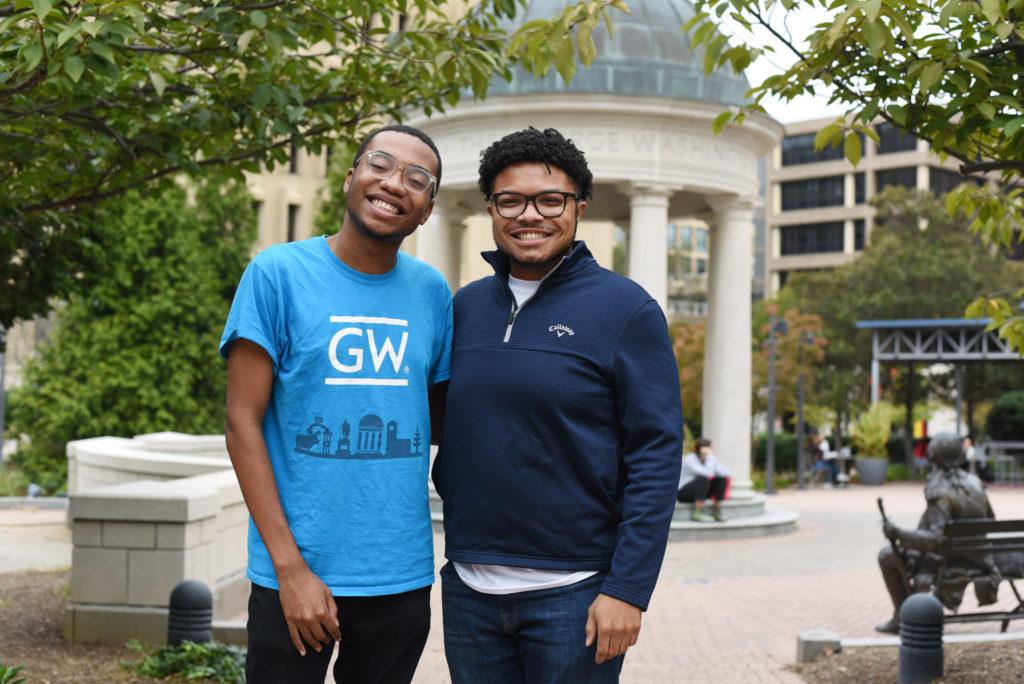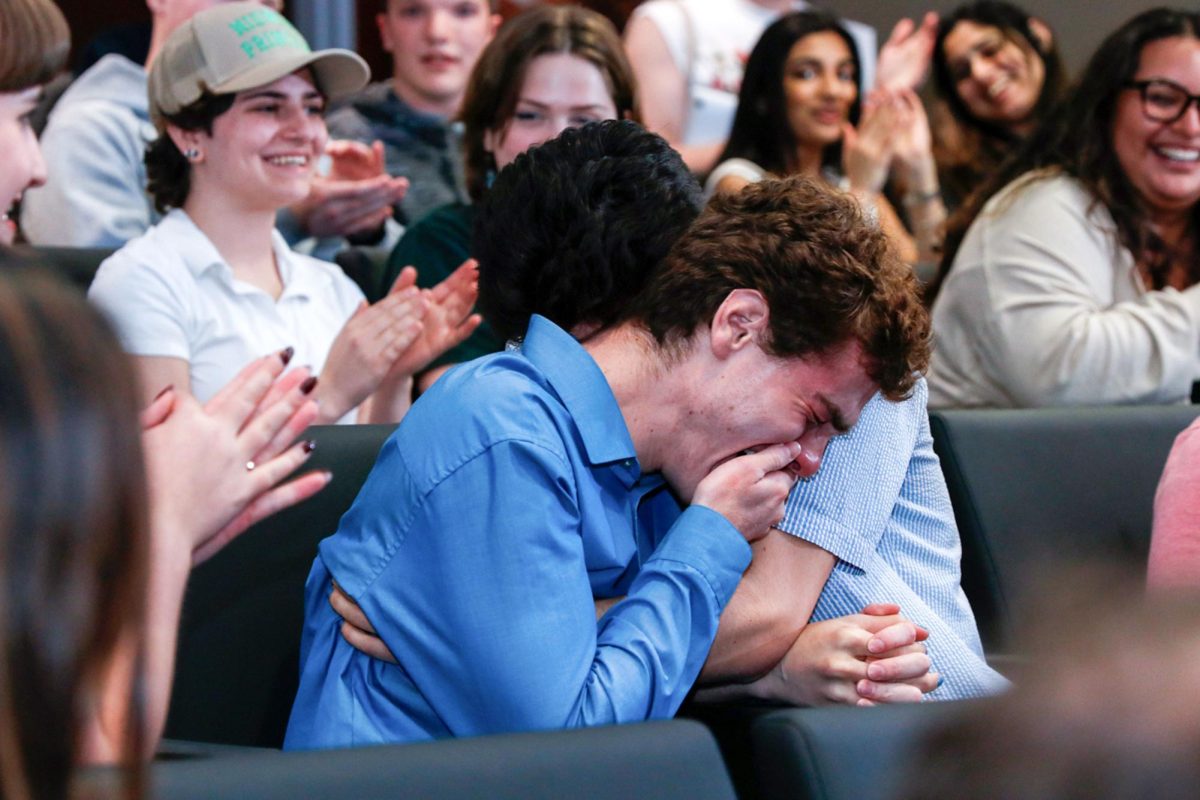Updated: May 11, 2020 at 7:47 p.m.
In the first year for the Student Association’s Black Senators Caucus, members said they have worked to ensure black students are represented in SA decisions.
The caucus met for the first time in early October to outline their goals like increasing black student retention in the SA and at GW, developing strong relationships with student organizations and addressing racial incidents. Brandon Hill, the SA executive vice president who chaired the caucus during the academic year, said the members worked to serve as a liaison for black students in the SA and address racist instances like a Phi Sigma Sigma member’s Snapchat post, which surfaced in September.
“I view the caucus as a security force or an emergency preparedness plan,” Hill said. “Being a member of the [Black Senators Caucus], you knew that at the drop of the hat you would have to move everything in order to represent and advocate for black students.”
Hill said many black senators in the SA were left out of the planning process to create the body’s response when an Alpha Phi sorority member posted a racist Snapchat in spring 2018. The caucus was designed for black senators to use the group as a “mechanism” for representation in student government, he said.
He said the caucus has supported other black student groups like The Ace Magazine – a publication from the Black Student Union – by bringing the publication’s members to BSC meetings.
Hill said caucus members also collaborated with GW’s National Association for the Advancement of Colored People chapter to draft a response following University President Thomas President LeBlanc’s comment comparing fossil fuel divestment to shooting “all black people.”
BSC members issued a statement within a few hours of the video surfacing, saying LeBlanc’s language was “racially insensitive” and “thoughtless.”
“People wanted to know what the BSC thought, and our statement was cited all over the place by so many students and organizations on campus,” Hill said.
Hill said he anticipates the BSC can continue its work next year supporting black student organizations and increasing black student SA representation through emphasizing “proactive” over “reactionary” dialogue in the SA. He said caucus members are working to create a finance guide for black student organizations to secure extra money over the larger student organizations that request SA funds.
“Black students shouldn’t feel the need to be treated as a protected class in a sense that they should feel free to live about just as any member of the dominant culture,” Hill said.
Howard Brookins, the SA president and former caucus vice chair, said he envisioned the BSC as a place for black students to voice their opinion in SA decisions and work as a collective of black student voices when advocating against racist instances that occur on campus, like Snapchat posted by a former Phi Sigma Sigma president.
“There hasn’t been anything like the Black Senators Caucus in the SA’s history because there hasn’t been a set cohort of students specifically advocating for a minority goal,” Brookins said.
He said the SA diversity and inclusion assembly hosted a forum for students to discuss the Snapchat which acted as a “foundational” event in the caucus’ creation, informing the community the caucus is a space for students to discuss racism.
Brookins said the caucus sponsored the Code of Conduct Reform Act after LeBlanc’s comments in February. The resolution called on officials to include examples of bias-related instances in the Code of Student Conduct and for “necessary repercussions” if racist instances occur.
He said the caucus also sponsored the GW Police Department Institutional Reform Act after a GW police officer allegedly pushed a female student down the F Street House stairs in a February protest. The act called on officials to release guidelines for student protests and require GWPD officers to treat all students with respect.
The officer who allegedly pushed the student was placed on administrative leave following the protest.
Brookins said the caucus also endorsed the Student Organization Outreach Act, which requires the SA president and executive vice president to hold joint meetings with all student organization leaders once a semester to foster connections among the groups’ leaders and the SA.
As the current SA president, Brookins said he will work to reinstate the BSC next academic year because the original legislation that created the group states the caucus disbanded at the end of the 2020 spring semester.
“We will definitely look to see a caucus created and look to work with senators to make sure that the caucus is alive and well and that we are offering full support to them,” Brookins said.
SA Sen. Tony Peeler, ESIA-U, said the caucus members also created a how-to guide on SA elections sent to students inquiring about running for an SA position. The document included instructions on how much money senators spent on campaigns and platform ideas used to help students who might have been confused about the logistics of leading a campaign or voting as a student, he said.
“I think having this document and compiling our experiences together was one of the most impactful things we had,” Peeler said.
He said he will work to reintroduce the caucus, which will undergo changes in leadership roles, to the senate next year. He said now that former caucus leaders Hill and Brookins moved into higher SA positions, reinstating the caucus next year will be up to the remaining black senators.
“It’s really giving an image to other students no matter what color you are or where you came from you’re able to be in these top leadership positions and start small,” Peeler said. “I think the BSC has a hopeful future and hopefully I can continue that future along with my fellow senators.”
This post was updated to correct the following:
In a previous version of this story, The Hatchet incorrectly reported that members of the caucus hosted a member of the “Central Park Five” in February. The caucus was not involved in its planning. We regret this error.







